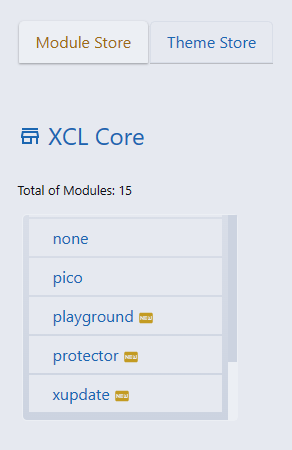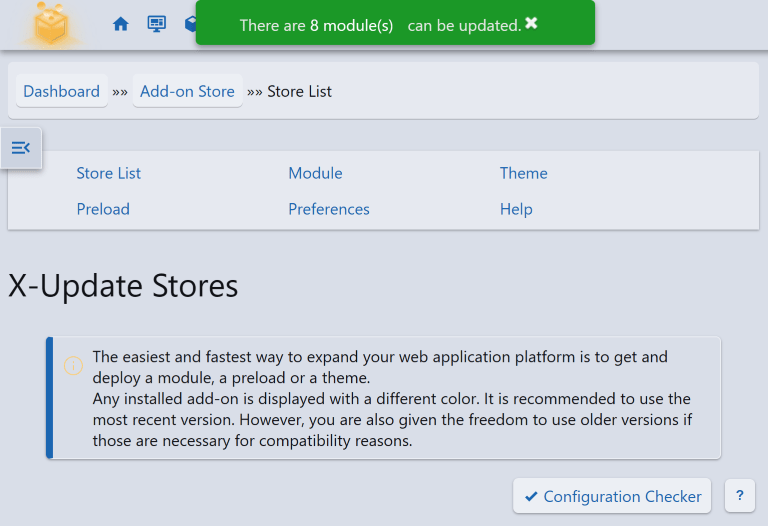Get and Deploy Modules
The easiest and fastest way to extend your web application platform is to get and deploy add-ons, modules or preloads (single file component). Any installed add-on is displayed with a different color (installed, updatable, etc). It is recommended to use the most recent version.
You are also given the freedom to use older versions if those are necessary for compatibility reasons.
Beware of potential issues that arise with installing older versions of modules needed. The older versions may not be compatible with the XCL 2.3.x version you have installed.
XCL Store Module

Your own app store
You can get and deploy modules from the public GitHub repository. Public repositories are accessible to everyone on the internet.
Or you can create your private repository with customized modules and get your modules from the Store menu of your Update Manager.
This procedure works for all types of Store components — modules, preloads, themes — except app services.
Installing Store Content
There are two ways to install a Store component, which are described in the sections below
Access the administration Control Panel and click X-Update Manager to simple extend your Web Application Platform.
X-Update Manager dashboard allows you to browse content by Store, modules, preloads or themes.

Add new features by installing add-ons, modules, preloads (single file component extensions) or themes.
There are two ways to find components of the Store in X-Update Manager:
Store List
- Click [ Store List ] in the top menu
- Scroll the Store components
- Select a component from the Store to see its details
Module List
- Click [ Module } in the top menu
- Scroll the module list components
- Select a component checkbox to install
- Follow the steps in the wizard

You can explore content that you can filter and sort in the following ways:
- Module Name
- Alphabetical order
- Category
- Modules can be organised into categories
- Last Update
- Based on the last updated date
- Version
- Higher than 2.3.x are compatibility with future versions
- Required Level
- Required by the system version, normal or recommended
- Type
- X2Module or TrustModule (install and rename multiple public instances)
The Web Application Platform can include various module types. The modules can belong to a subsystem, a renderer engine or they can run independently.